What is a musk ox? Is the musk ox actually a cow?
The musk oxen is part of the Bovidae family, a taxonomic group of over 140 extant (living) species including domestic cattle, sheep, goats, bison, antelopes, and wildebeest.
Whilst cattle, bison and buffalos are in the subfamily Boninae, the musk ox is in the subfamily Caprinae, which also includes ibex, sheep, and goats.
This means that the musk ox is more closely related to the species in the Caprinae family such as sheep and goats than it is to cows.
The musk ox is the only species in the Ovibos genus, and with the takin (below), another large ungulate in the Caprinae subfamily, is part of the Ovibovini tribe.
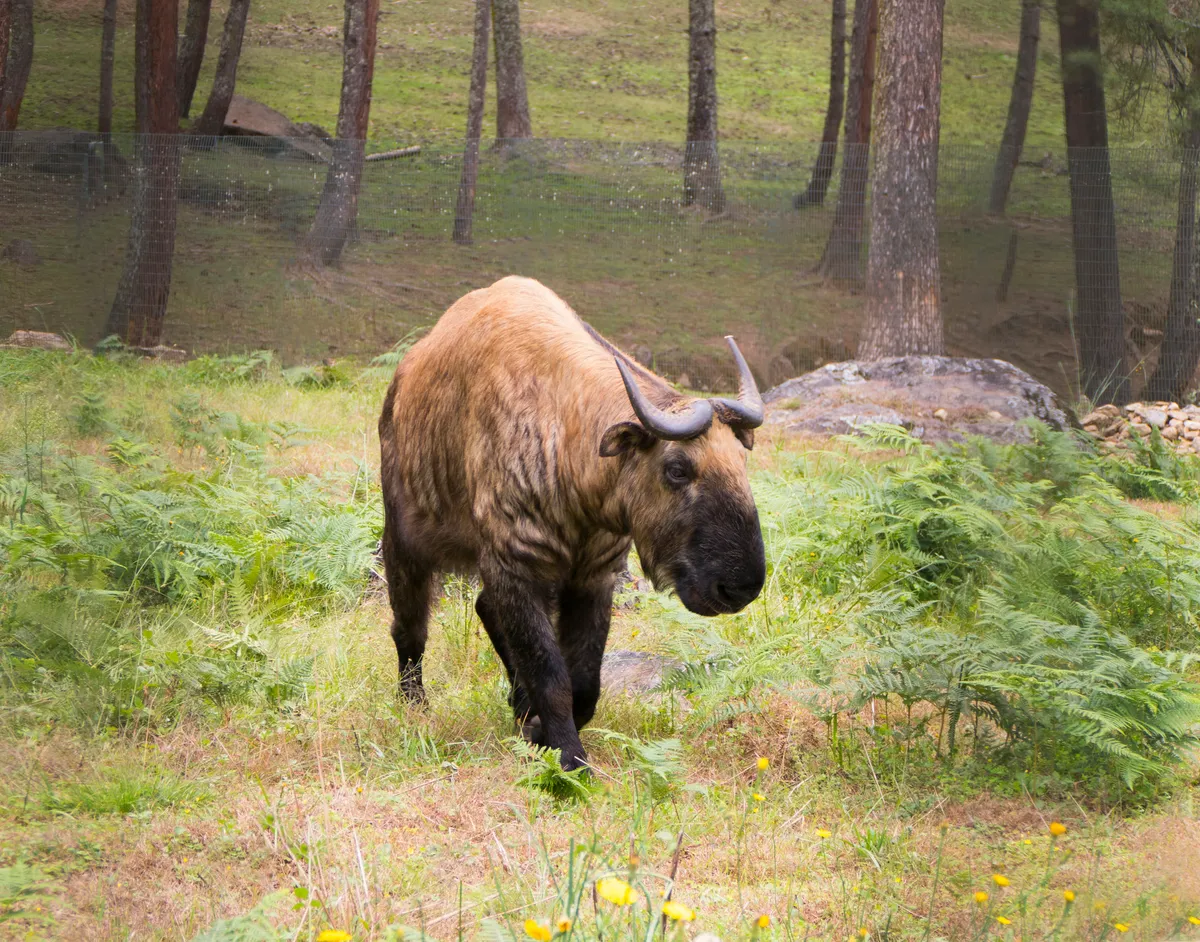
Where do musk ox live?
By the middle of the 19th century, the only remaining populations of musk ox were found in the tundra of the Canadian Arctic. Since then, populations have been reintroduced to Norway, Alaska, and Siberia.
What do musk oxen look like? How big are they?
Musk oxen are large, hoofed mammals that stand up to 1.5 metres tall at the shoulder. Males weigh approximately 300kg and females 200kg.
Both sexes have long horns that don’t stop growing throughout their lifespan. On the males, the horns will combine to form a brow band called a “boss”. This boss is believed to protect the head of the male during rutting displays.
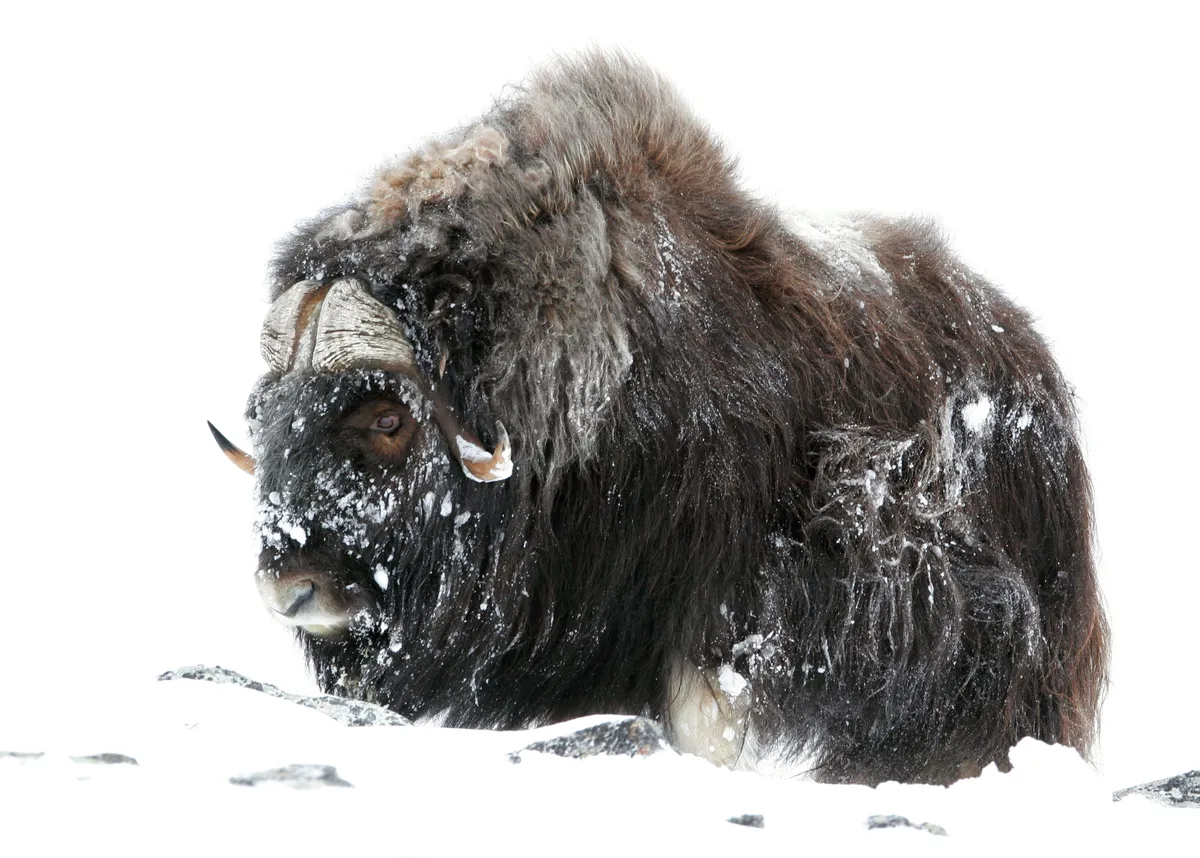
Musk oxen have an extremely thick, two-layered coat: the outermost “guard hairs” cover a shorter layer of “qiviut” hairs. Qiviut hairs are considered one of the world’s warmest natural fibres and musk oxen shed these hairs at the start of spring.
What do musk oxen eat?
Musk oxen are herbivorous and feed on grasses, Arctic willow, woody plants, lichen, and moss. During the winter, musk oxen will paw the snow with their hooves to find food.
When do musk oxen mate?
The mating season of musk oxen occurs between late August and October. During this time, a dominant male will guard a harem of females and compete with opposing males by “rutting”. The dominant male may mate multiple times with each female during one season.
What are baby musk oxen called?
Baby musk oxen are called calves.
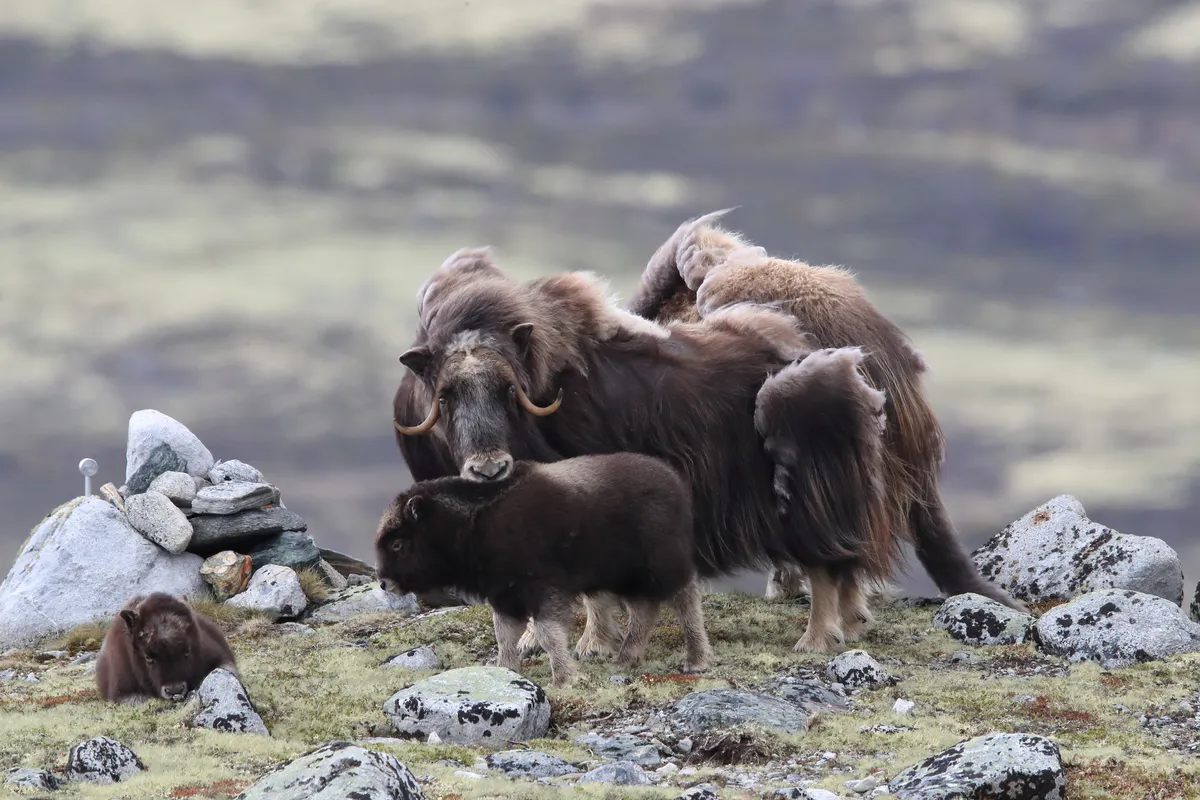
When do musk oxen breed?
After an eight-month gestation period, females will give birth to one calf between April and June when the weather is warmer, and food is more readily available.
The calf can stand and follow its mother within a few hours after birth, which is a necessary requirement to outrun potential predators.
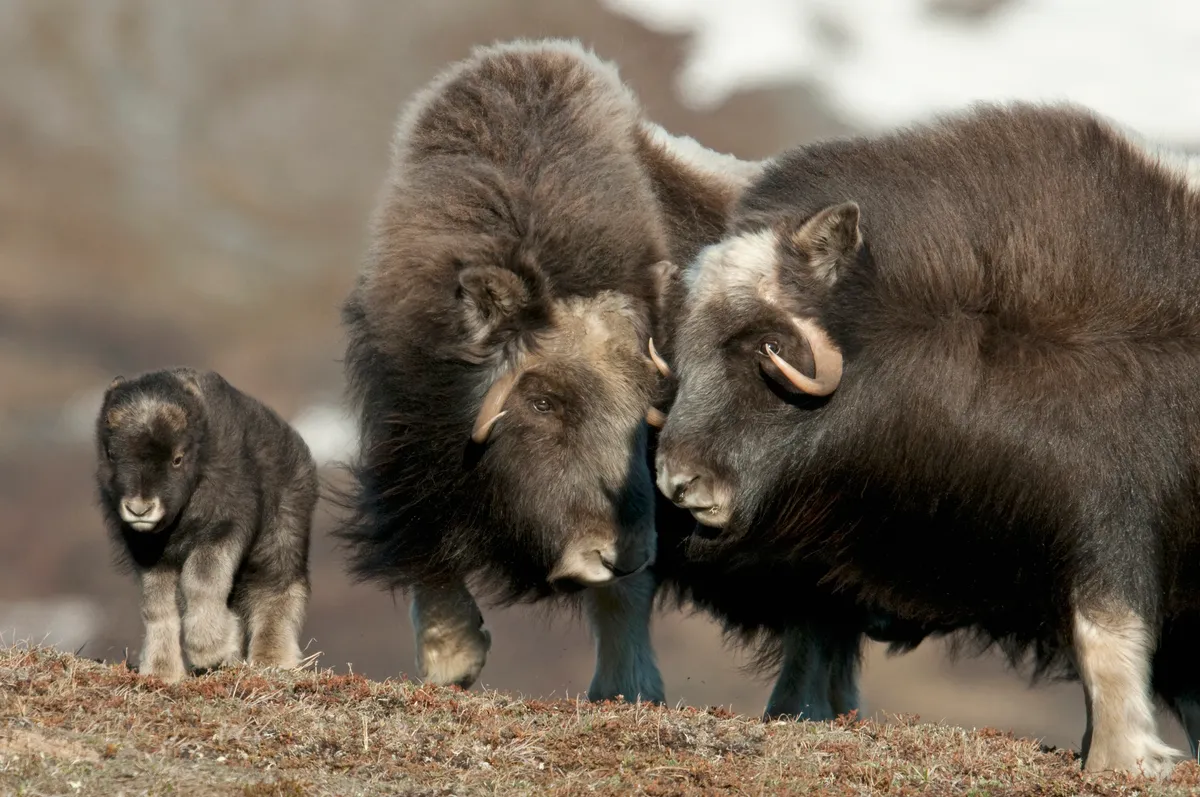
Do musk oxen have a dominance hierarchy?
Both male and female musk oxen conform to two separate dominance hierarchies, with males more dominant over females.
How do musk oxen communicate?
During the rutting season, males will produce a loud, bellowing noise known as “roaring”. Males will also paw the ground, and lower their heads and charge at one another to communicate dominance over their competitor.
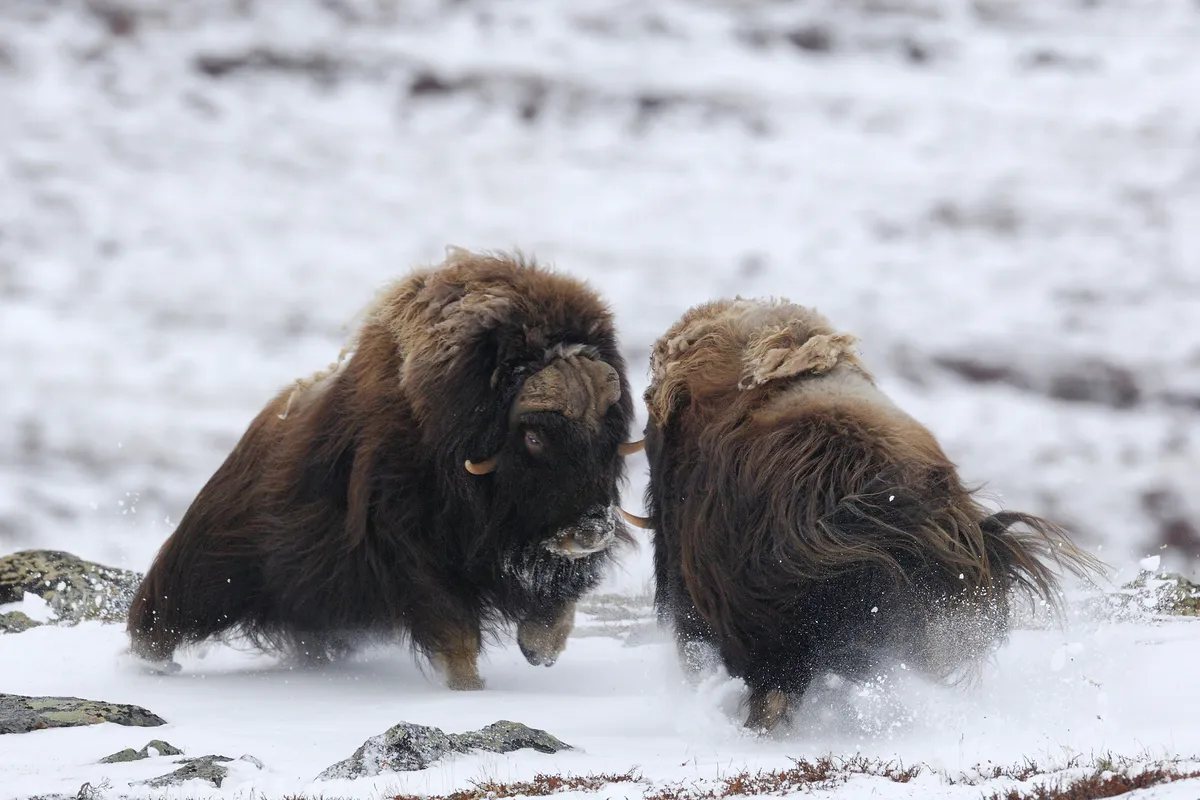
Roaring in females is used to communicate with their calves, who bleat.
Both sexes possess a scent gland in slits beneath the eyes that produces a secretion when rubbed on the animal’s own leg, or on an object in its environment. This form of scent marking is exhibited all year, but more so by males during the rut, and occurs during aggressive interactions between individuals.
What are musk oxen’s main predators?
Arctic wolves, polar bears, and brown bears may predate on musk ox. When threatened by potential predators, musk oxen will form a formidable circle around their young with their horns pointing outwards for protection. Musk ox may charge to scare away the predator.
Clip of wolves vs a herd of muskox from Snow Wolf Family and Me:
Please note that external videos may contain ads:
What is the scientific name of the musk ox?
The scientific name of the musk ox is Ovibos moschatus, which translates as “musky sheep-ox”. The ‘musk’ part of their name comes from the distinctive odour produced by males to attract females during the mating season.
What is the plural for musk ox?
To describe more than one musk ox, the plural is musk oxen.
Wolves vs Herd of Muskox | Snow Wolf Family and Me | BBC Earth
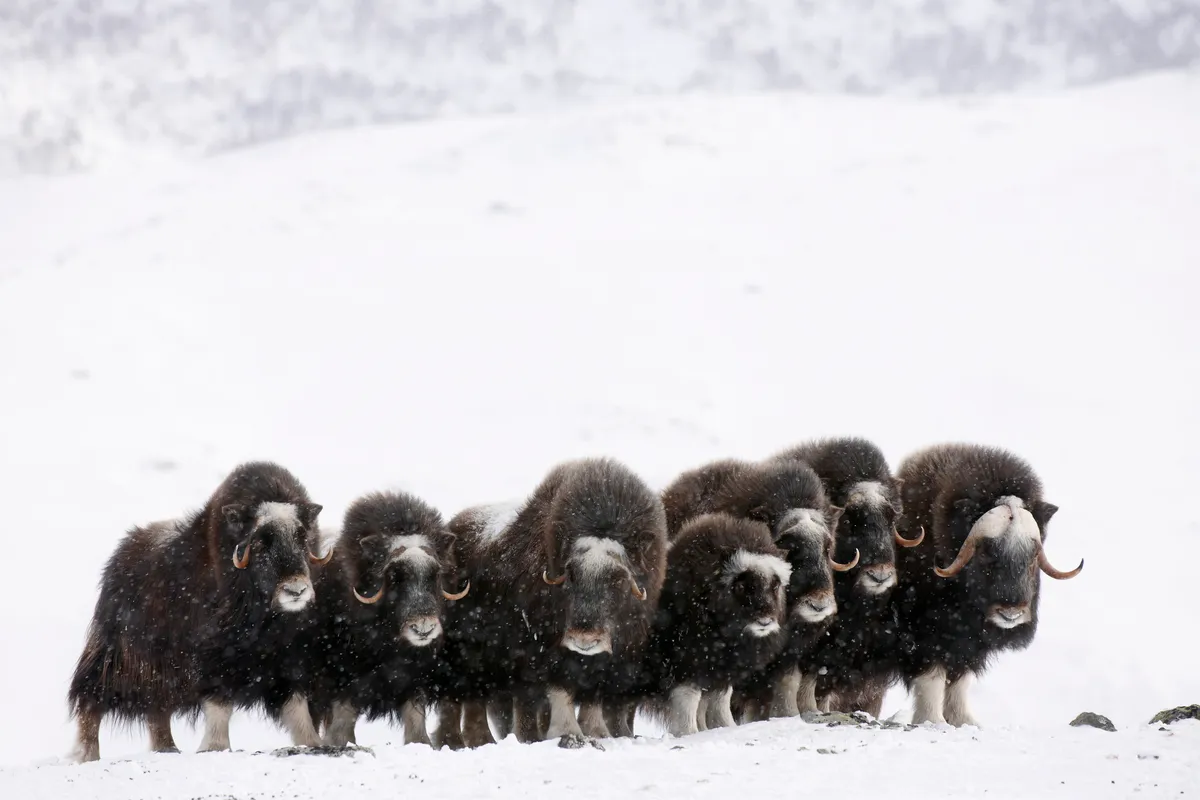
Are musk oxen endangered?
Musk oxen are listed on the IUCN Red List as Least Concern (last assessed 2008). The population size is estimated at 80,000 to 120,000 individuals and is stable.
Main image: A musk ox in the snow at Dovrefjell National Park, Norway. © Dgwildlife/Getty
More species guides
- Expert guide to mammoths: all your questions answered
- Elephant guide: where do they live, what do they eat and how to identify them
- Ring-tailed lemur guide: where they live, what they eat, and why they're endangered
- Zebra guide: species facts, where they live and migration
- Scottish wildcat guide: how to identify, where they live, and conservation efforts
